SQL Server Licensing By Microsoft
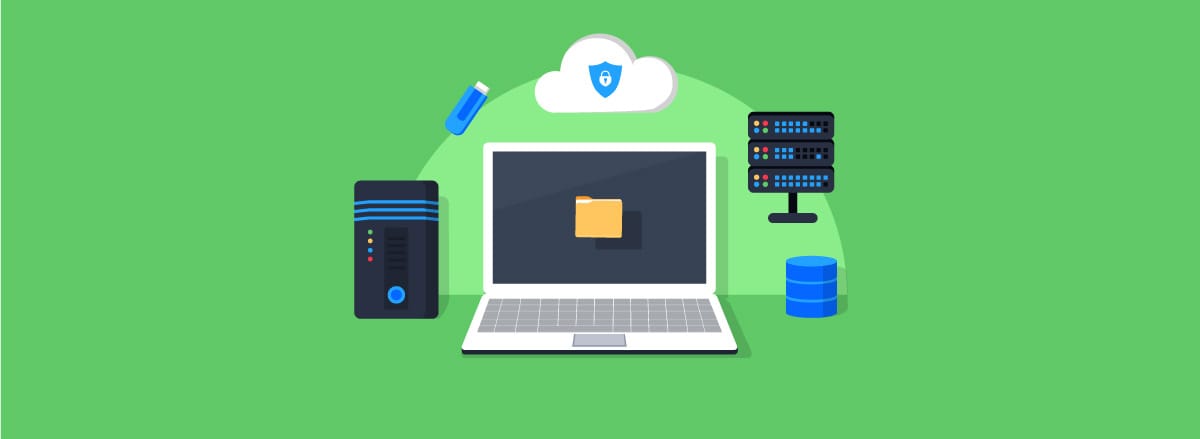
SQL Server 2017 editions-latest features
SQL Server 2017 builds on the features introduced in the 2016 version. With continued best-in-class security, 2017 innovates further with improved performance, cross-platform compatibility with Linux, better statistical and data science analysis services while reducing cost.
Upgrade Benefits with SQL Server 2017
SQL Server 2017 represents the most innovative database management and development platform yet with:
- Improved performance with SQL Server 2017 increases overall application and organization performance with Adaptive Query Processing.
- New integrations with R and Python, combined with graph data support, improves data analysis.
- These latest innovations further leverage Business Intelligence mobility to offer outstanding services to customers.
- Cross-platform compatibility with Linux and Docker connects these platforms to improved security and performance and reduces costs from third-party support and development.
- SA licensing flexibility reduces cost so companies can scale to cloud-based and HA services or operate hybrid database environments.
- Upgrading is less time-consuming with a wizard so companies can leverage the latest benefits faster than ever for more productivity.
Shop Online
-
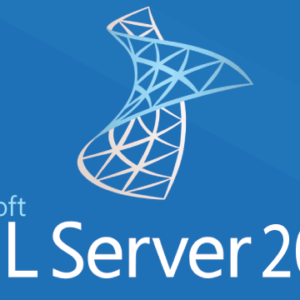
Microsoft SQL Server 2017 Device CAL Open Business | 359-06555
$229.00 -
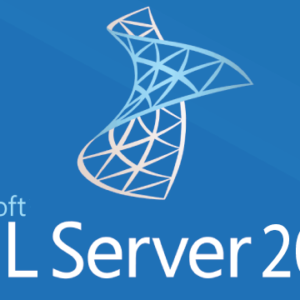
Microsoft SQL Server 2017 Enterprise 2-Core Open Business | 7JQ-01275
$13,859.81 -

Microsoft SQL Server 2017 Standard 2-Core Open Business | 7NQ-01158
$3,719.00 -
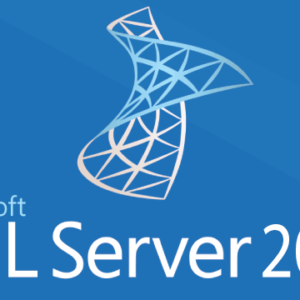
Microsoft SQL Server 2017 Standard Open Business | 228-11135
$907.96 -
Sale!
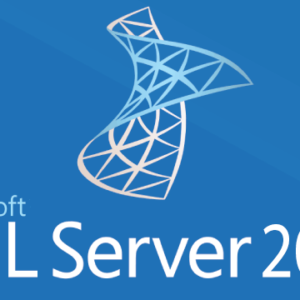
Microsoft SQL Server 2017 Standard w/10 CAL Retail Box | 228-11033
Original price was: $2,549.00.$1,549.99Current price is: $1,549.99.
Server Editions & Plan Comparisons
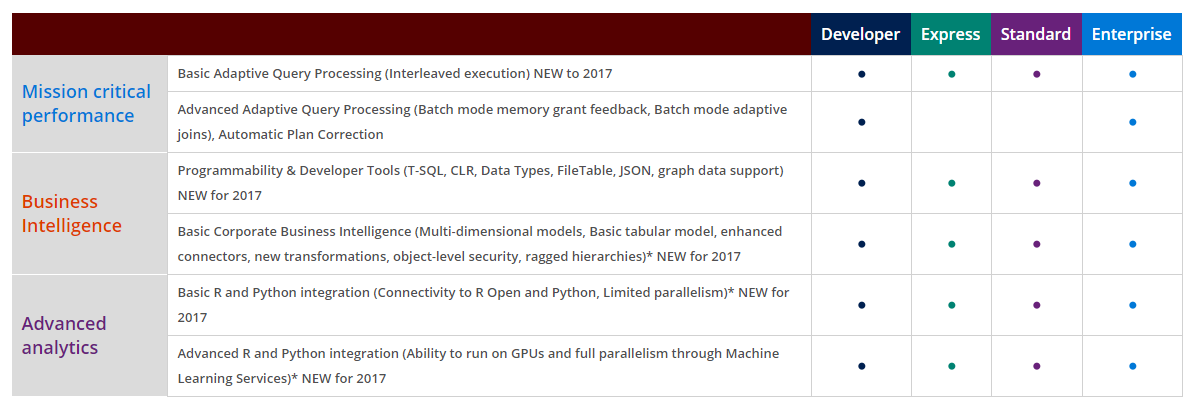
SQL Server 2017 Licensing Models
With Software Assurance (including License Mobility), fluid movement between on-site and cloud platforms provides improved license management without restrictions.
Software Assurance lowers cost for High Availability applications where multiple servers are necessary since passive licenses are less expensive. Without Software Assurance all licenses for HA are considered active which increases cost.

Frequently Asked Questions
Q: How much effort will be necessary for an upgrade to SQL Server 2017?
A: On-premises upgrades are simplified with wizards for versions as old as SQL Server 2008.
Q: Isn't it expensive to upgrade?
A: Maintenance costs and risks increase for legacy systems over time, risk being a key driver of cost if breaches to older databases occur.
SQL Server 2016 editions–what’s new
SQL Server 2016 is the biggest leap forward in Microsoft data platform history. Utilize real-time business analytics, built-in data analysis and advanced security technology. Supports mobile devices & hybrid cloud scenarios.
Enterprise
SQL Server Enterprise delivers full datacenter power for mission-critical databases. Run business intelligence and advanced analytics workloads.
Standard
SQL Server Standard provides core data management and business intelligence features. Ideal for non-critical workloads with minimal IT resources.
Express
SQL Server Express is a free edition of SQL Server. Ideal for development and production for desktop, web and small server applications.
Developer
SQL Server Developer is a free edition providing the full feature set of SQL Server Enterprise. For development and testing. Not for production environments or use with production data.
Shop Online
-
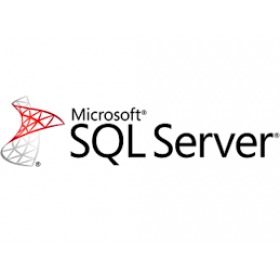
Microsoft SQL Server 2016 Device CAL Open Business | 359-06320
$212.08 -
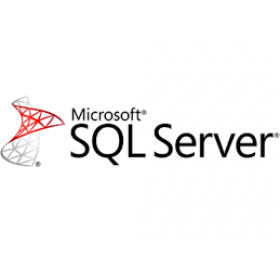
Microsoft SQL Server 2016 Standard 2-Core Open Business | 7NQ-00806
$3,617.64 -

Microsoft SQL Server 2016 Standard Open Business | 228-10817
$907.96 -
Sale!
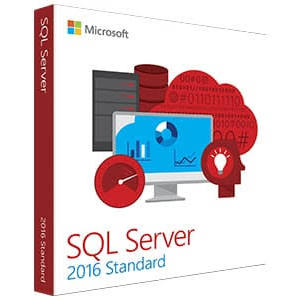
Microsoft SQL Server 2016 Standard w/10 CAL Retail Box | 228-10602
Original price was: $1,999.99.$1,699.99Current price is: $1,699.99. -
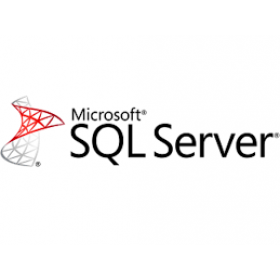
Microsoft SQL Server 2016 User CAL Open Business | 359-06322
$212.08
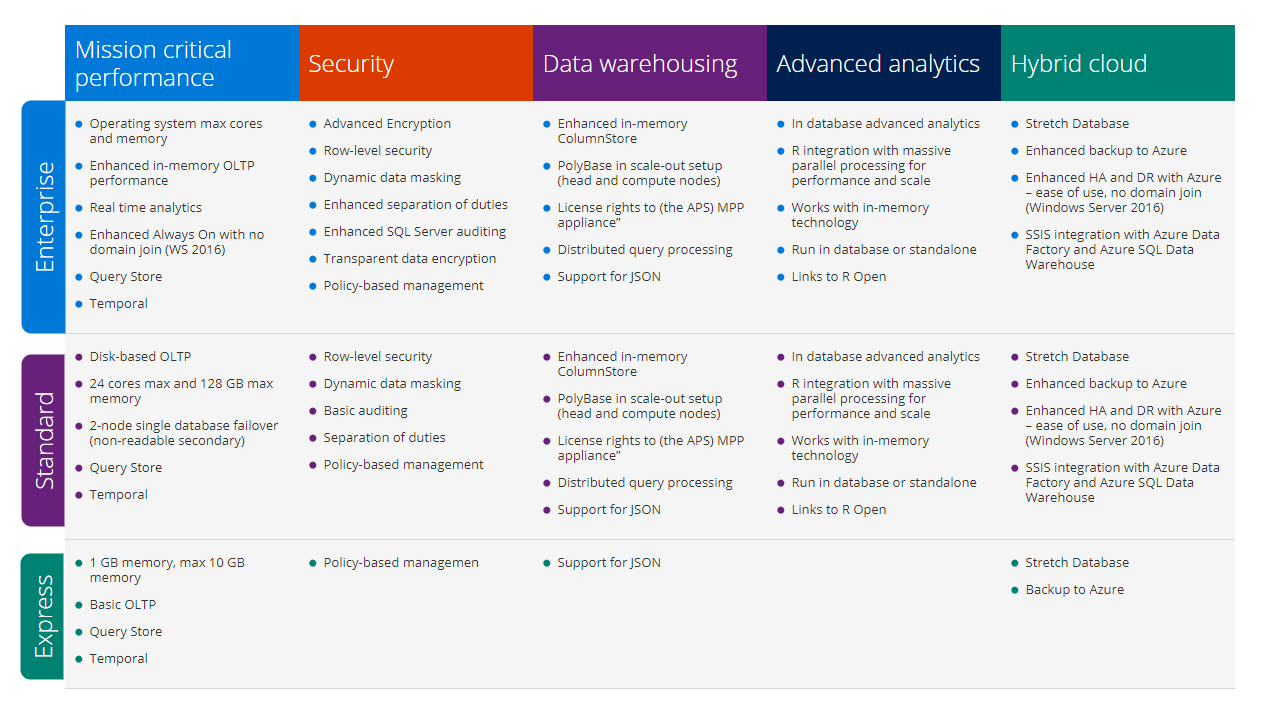
Server Editions & Plan Comparisons
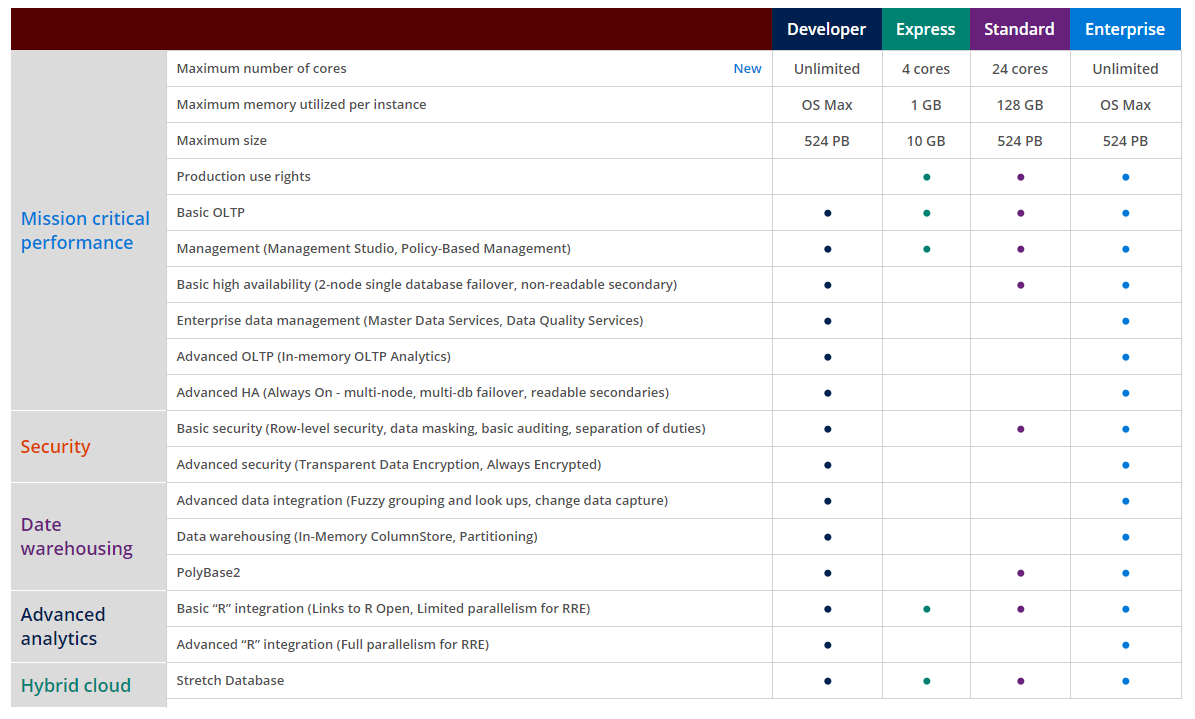
Did You Know?
88% of instances of SQL Server are not licensed correctly
SQL Server 2016 Licensing Models
SQL Server 2016 offers customers a variety of licensing options. These options align with how businesses typically host specific workloads. There are two main licensing models that apply to SQL Server:
SERVER + CAL: Provides the option to license users and/or devices. Low cost access to incremental SQL Server instances
- Each server running SQL Server software requires a server license.
- Each user or device accessing a licensed SQL Server requires a SQL Server CAL. The CAL must be the same version or newer. To access a SQL Server 2012 Standard Edition server, a user would need a SQL Server 2012 or 2016 CAL.
- Each SQL Server CAL allows access to multiple licensed SQL Servers. This includes Standard Edition, Business Intelligence and Enterprise Edition Servers.
PER CORE: Gives customers a precise measure of computing power. Provides a more consistent licensing metric regardless of setup. Per core works for physical servers on-premises, or in virtual or cloud environments.
- Core based licensing is appropriate for customers who are unable to count users or devices. Core licensing is used for Internet/Extranet workloads or systems that integrate with web facing databases.
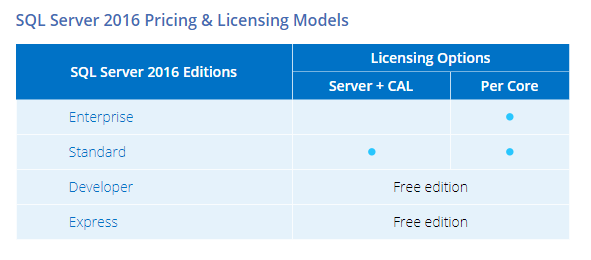
Licensing for Virtualization
SQL Server 2016 offers virtualization rights to provide flexibility for customers with virtual environments. There are two primary virtualization licensing options in SQL Server 2016. The ability to license single virtual machines and the ability to license for maximum virtualization. This applies to large scale setups and private cloud environments.
INDIVIDUAL VIRTUAL MACHINES:
As hardware continues grow, databases will use less computing power. Save on low-usage Virtual Machine Databases by licensing individual VMs.
- To license a VM with core licenses, purchase a core license for each virtual core (virtual thread) allocated to the VM (with a minimum of 4 core licenses per VM).
- To license a single VM with a server license (for Standard Edition only), purchase a server license and matching SQL Server CALs for each user or device. Standard Edition and legacy Business Intelligence and Enterprise Edition Servers.
- Each licensed VM covered with SA can move within a server farm, or to a third-party hoster. This includes cloud services providers. Software Assurance prevents the need to purchase additional SQL Server licenses.
Server + CAL Licensing
Licensing SQL Server software under the Server + CAL model. Customers need to buy a server license for each server. Customers also typically need to purchase client access licenses and device CALs. CALs are used when accessing SQL Server or any of its components. A CAL is a license granting users and devices access to the SQL Server software.
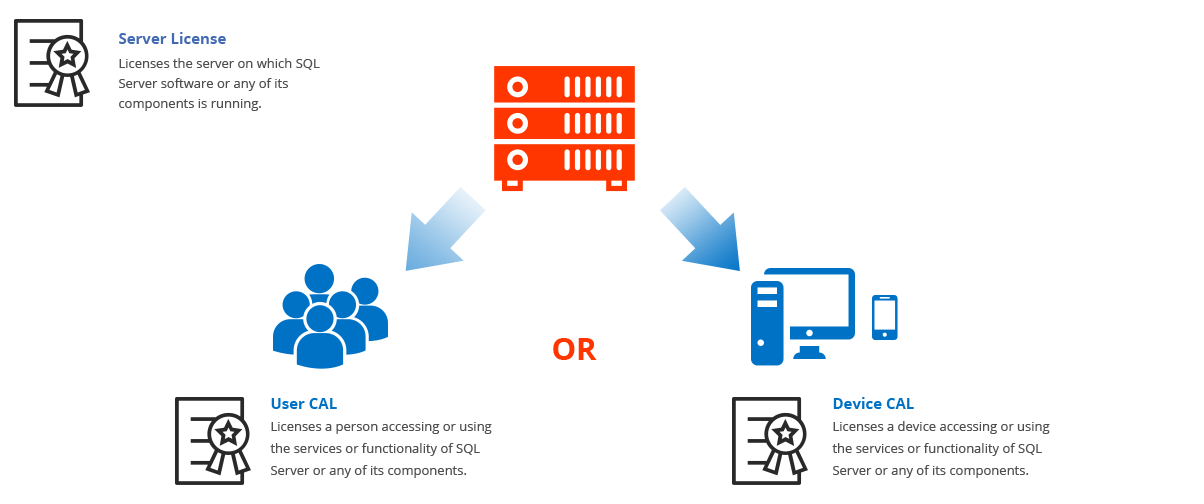
Frequently Asked Questions
Q: Is your version still supported?
A: Versions 2014 and above are supported.
Q: Which licensing model is right for me? / How do I license SQL server?
A: Most SQL server instances are sold using the CAL model. The CORE licensing model applies if you have 30+ users. If you have an unknown number of users. Or if the server is part of a web facing database. Have questions? Give us a call, 1-877-292-7712.
Q: Do I have to buy new CALs during an upgrade?
A: Yes – unless you have purchased software assurance within the last 2 years.
Find Us Online
Authorized By




